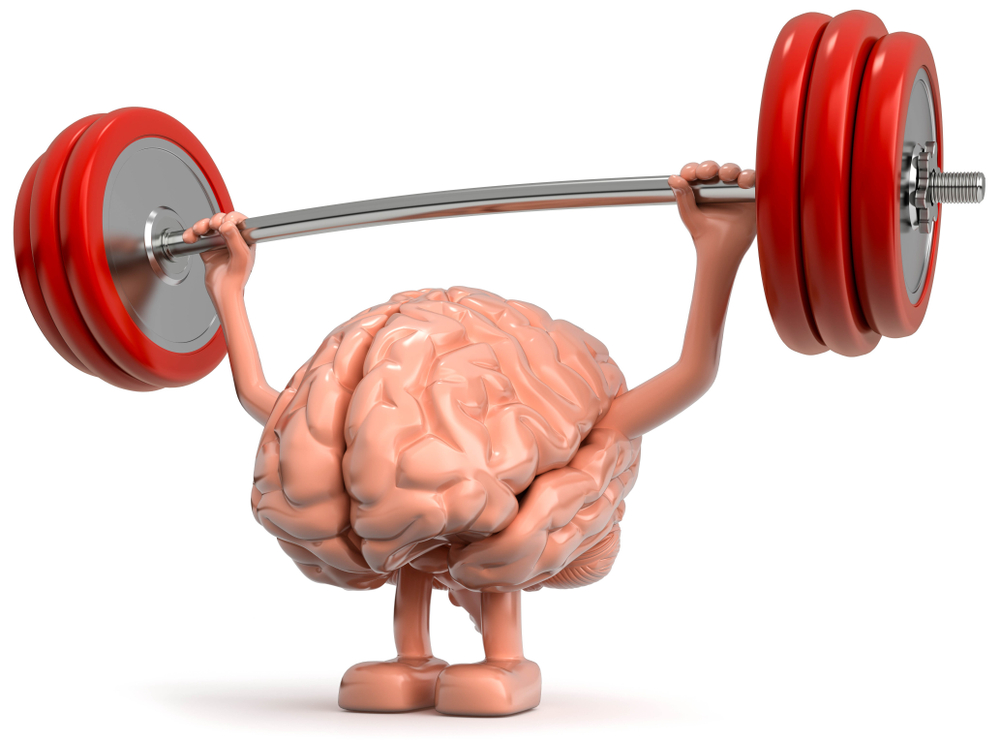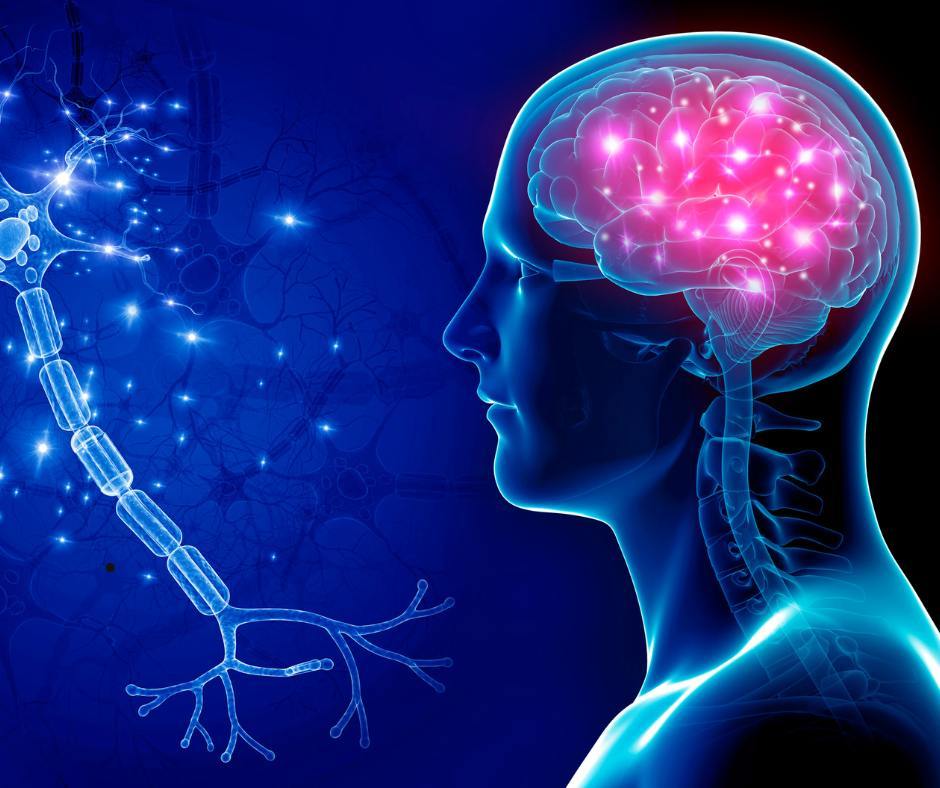How To Train Your Brain Like You Train Your Muscles
 Training your brain is much like training your muscles: both require consistency, effort, and a strategic approach. Just as physical exercise strengthens and tones the body, mental exercises can enhance cognitive abilities, improve memory, and boost overall brain function.
Training your brain is much like training your muscles: both require consistency, effort, and a strategic approach. Just as physical exercise strengthens and tones the body, mental exercises can enhance cognitive abilities, improve memory, and boost overall brain function.
This guide explores effective techniques to train your brain, ensuring that your mind remains sharp, agile, and resilient.
Brain Training
Before diving into specific brain training techniques, it's essential to understand the fundamentals of how the brain functions and the benefits of mental exercise. The brain, like muscles, can change and adapt through a process known as neuroplasticity.
This ability allows the brain to reorganize itself by forming new neural connections, which can be strengthened through regular mental exercises.
Neuroplasticity and Cognitive Reserve
 Neuroplasticity refers to the brain's ability to adapt and reorganize in response to new experiences and learning. Engaging in mental exercises can stimulate neuroplasticity, helping to maintain and even improve cognitive functions.
Neuroplasticity refers to the brain's ability to adapt and reorganize in response to new experiences and learning. Engaging in mental exercises can stimulate neuroplasticity, helping to maintain and even improve cognitive functions.
Cognitive reserve, on the other hand, is the brain's resilience to neuropathological damage. Building a robust cognitive reserve through mental training can delay the onset of cognitive decline and enhance brain health.
Benefits of Brain Training
The benefits of brain training are vast and include improved memory, increased attention span, enhanced problem-solving skills, and better emotional regulation. Regular mental exercises can also reduce the risk of age-related cognitive decline and conditions such as dementia and Alzheimer's disease.
Mental Exercises for Cognitive Enhancement
To effectively train your brain, incorporate a variety of mental exercises that challenge different cognitive functions. Here are some key exercises to include in your brain training routine.
Memory Exercises
Memory is a crucial cognitive function that can be strengthened through targeted exercises.
- Mnemonic Devices: Use mnemonic techniques such as acronyms, visual imagery, and rhymes to remember information more easily.
- Repetition and Review: Regularly review and repeat information to reinforce neural connections and improve recall.
- Chunking: Break down large pieces of information into smaller, manageable chunks to enhance memory retention.
Problem-Solving and Critical Thinking
 Engaging in activities that require problem-solving and critical thinking can boost cognitive flexibility and analytical skills.
Engaging in activities that require problem-solving and critical thinking can boost cognitive flexibility and analytical skills.
- Puzzles and Brain Teasers: Solve puzzles like Sudoku, crosswords, and brain teasers to challenge your problem-solving abilities.
- Strategy Games: Play strategy games such as chess, Go, or video games that require planning and foresight.
- Case Studies and Simulations: Analyze case studies or participate in simulations to develop critical thinking and decision-making skills.
Attention and Concentration
Improving attention and concentration can enhance your ability to focus and process information efficiently.
- Mindfulness Meditation: Practice mindfulness meditation to increase your awareness and attention span. Focus on your breath or a specific object to train your mind to concentrate.
- Selective Attention Tasks: Engage in tasks that require you to focus on specific stimuli while ignoring distractions, such as reading in a noisy environment or playing attention-based video games.
- Dual-Task Exercises: Perform dual-task exercises that involve doing two activities simultaneously, such as walking while solving mental math problems.
Language and Verbal Skills
Enhancing language and verbal skills can improve communication abilities and overall cognitive function.
- Reading and Writing: Regularly read books, articles, and journals to expand your vocabulary and comprehension. Write essays, stories, or journal entries to practice your writing skills.
- Learning a New Language: Learn a new language to challenge your brain and improve verbal memory and cognitive flexibility.
- Word Games: Play word games like Scrabble, Boggle, or online word puzzles to boost your vocabulary and verbal reasoning skills.
Lifestyle Changes for Optimal Brain Health
In addition to specific mental exercises, certain lifestyle changes can significantly impact brain health and cognitive function. Adopting a brain-healthy lifestyle can complement your brain training efforts and enhance overall cognitive well-being.
Physical Exercise
Physical exercise is not only beneficial for your body but also for your brain. Regular aerobic exercise increases blood flow to the brain, promoting the growth of new neurons and improving cognitive function.
- Cardio Workouts: Engage in cardiovascular exercises such as running, cycling, swimming, or brisk walking to boost brain health.
- Strength Training: Incorporate strength training exercises to improve overall fitness and support brain function.
- Balance and Coordination: Practice exercises that enhance balance and coordination, such as yoga or tai chi, to improve neural connectivity.
Nutrition and Hydration
Proper nutrition and hydration are essential for maintaining brain health and supporting cognitive function.
- Balanced Diet: Consume a balanced diet rich in fruits, vegetables, whole grains, lean proteins, and healthy fats. Foods like blueberries, nuts, fatty fish, and leafy greens are particularly beneficial for brain health.
- Hydration: Stay adequately hydrated by drinking plenty of water throughout the day. Dehydration can impair cognitive function and concentration.
- Supplements: Consider supplements like omega-3 fatty acids, vitamin D, and antioxidants if needed, but consult with a healthcare professional first.
Sleep and Relaxation
Adequate sleep and relaxation are crucial for cognitive function, memory consolidation, and overall brain health.
- Sleep Hygiene: Maintain good sleep hygiene by establishing a regular sleep schedule, creating a restful environment, and avoiding screens before bedtime.
- Naps: Take short naps during the day to rejuvenate your brain and enhance memory and learning.
- Relaxation Techniques: Practice relaxation techniques such as deep breathing, progressive muscle relaxation, or guided imagery to reduce stress and improve cognitive function.
Social Engagement
Staying socially active and engaged can support brain health and cognitive function.
- Social Activities: Participate in social activities, clubs, or groups to interact with others and stimulate your brain.
- Meaningful Conversations: Engage in meaningful conversations and discussions to challenge your thinking and improve communication skills.
- Volunteering: Volunteer for causes or organizations you care about to stay mentally and socially active.
Continuous Learning and Personal Growth
Lifelong learning and personal growth are key components of brain training. Continuously challenging your mind with new information and experiences can promote neuroplasticity and cognitive resilience.
Formal Education and Courses
Pursue formal education or take courses in subjects that interest you to expand your knowledge and cognitive abilities.
- Online Courses: Enroll in online courses or webinars to learn new skills or explore different fields of study.
- Workshops and Seminars: Attend workshops, seminars, or conferences to gain new insights and network with others in your field.
- Certifications and Degrees: Consider pursuing additional certifications or degrees to further your education and enhance your career prospects.
Hobbies and Creative Activities
Engage in hobbies and creative activities to stimulate your brain and foster personal growth.
- Arts and Crafts: Explore arts and crafts such as painting, drawing, knitting, or pottery to enhance creativity and fine motor skills.
- Music and Dance: Learn to play a musical instrument or take dance lessons to improve coordination, memory, and emotional expression.
- Gardening and Cooking: Participate in activities like gardening or cooking to stimulate your senses and promote relaxation.
Intellectual Challenges
Challenge your intellect with activities that require deep thinking and problem-solving.
- Reading and Analyzing: Read complex books, articles, or academic papers and analyze the content to deepen your understanding.
- Debates and Discussions: Engage in debates or discussions on various topics to challenge your thinking and improve your argumentative skills.
- Research and Projects: Conduct research or work on projects that interest you to apply your knowledge and develop new insights.
Conclusion
Training your brain like you train your muscles involves a combination of mental exercises, lifestyle changes, and continuous learning. By understanding the principles of neuroplasticity, engaging in diverse cognitive activities, adopting a brain-healthy lifestyle, and pursuing personal growth, you can enhance your cognitive function and maintain a sharp, resilient mind. Embrace these strategies to train your brain effectively and enjoy the benefits of improved mental performance and overall well-being.
Sources
- Understanding the Benefits of Neuroplasticity
- Memory Exercises: Boost Your Memory with These Tips
- The Importance of Problem-Solving Skills
- National Institute on Aging - Attention and Concentration Exercises
- National Institutes of Health - Physical Exercise and Brain Health
- World Health Organization - Lifelong Learning and Personal Growth

































